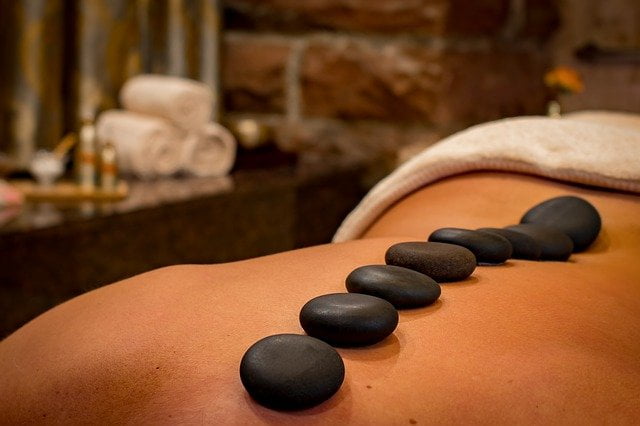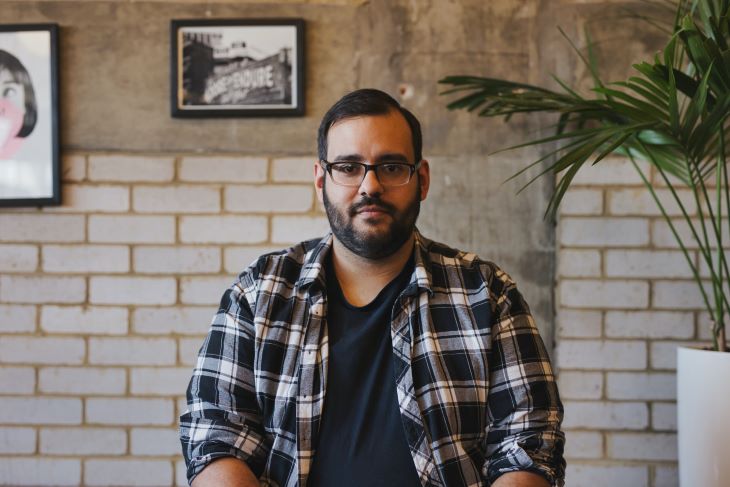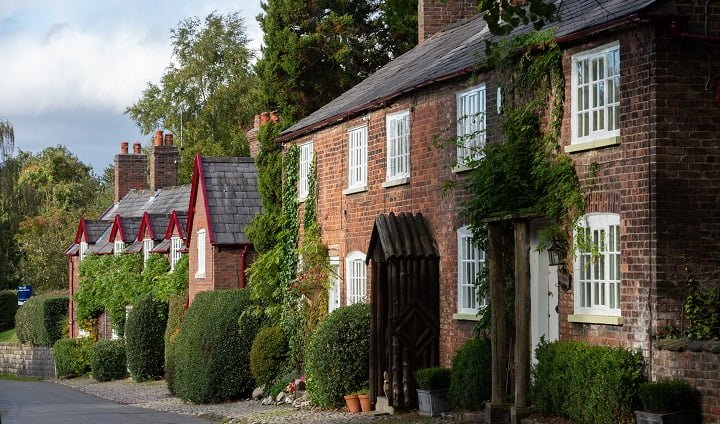Drug & Alcohol Rehab Birmingham & Near Birmingham
Quick links for help with addiction at a drug and alcohol rehab in Birmingham and near Birmingham
- What is Drug And Alcohol Rehab In Birmingham Like?
- What is the Admissions Process For Rehab in Birmingham?
- What if I Suffer from Multiple Conditions at Rehab in Birmingham?
- Is Addiction Treatment in Birmingham Accessible Through the NHS?
- How Do I Know if I Need Rehab in Birmingham?
- What Happens When I Arrive at Rehab in Birmingham?
- Can I Leave Rehab in Birmingham at Any Time?
- How Much Does it Cost to Go to a Drug and Alcohol Rehab in Birmingham?
- How Long Will I Have to Stay at an Alcohol or Drug Rehab in Birmingham?
- Alternative Options to Attending Rehab Centres in Birmingham
- What Types of Addictions Are Treated At Rehab in Birmingham?
- Which Therapies Are Available at Drug and Alcohol Rehab in Birmingham?
- How is a Relapse Prevention Plan Devised at Rehab in Birmingham?
- How Can Rehab Recovery Help?
If you are a resident of Birmingham and you are struggling with an alcohol abuse or drug addiction, today is the perfect time to find out more about the help and drug and alcohol rehab that is available for you so that you can make meaningful changes in your life.
It is not easy to reach the point of acceptance and understand that you have a problem that you must go to drug and alcohol rehab for.
Addiction is not considered a ‘choice’ or ‘moral failing’ on behalf of the addiction sufferer, and rehab believes in treating the disease of addiction.
What is Drug and Alcohol Rehab Birmingham Like?
According to the World Health Organisation [1] rehabilitation is an essential part of an individual’s recovery from illness. Not only does it aid recovery, but rehab also promotes good health, prevention of disease and palliative care [1].
Essentially, rehab is a place people go to when they want to recover from an injury, illness or a disease. This includes injuries from accidents, diseases such as addiction and other illnesses such as mental health issues.
When it comes to addiction, there are numerous rehab centres around the country, including Birmingham which focus on treating addiction issues.
A rehabilitation centre is a safe place where people struggling with addiction can go to recover and detox from their addiction. There are two main types of rehab centres, including inpatient and outpatient rehab.
Rehab centres are built to offer a range of different treatment options, including a detox and a range of therapy techniques, including cognitive behavioural therapy and motivational interviewing.
The best thing about rehab centres is that it takes you away from your day-to-day environment, which might be contributing towards your addiction.
These are often called triggers and could include things such as people, places or habits. By removing yourself from that environment, you will be in a much better place and position to focus on your rehab recovery.
What Are the Benefits of Alcohol Rehab in Birmingham?

Two people discussing drug and alcohol rehab in Birmingham
Experts have agreed that abstinence is always the safer and more effective route to addiction rehab recovery.
Whether you have a mild or severe addiction, rehab can help you get your life back on track, so you can look after your health, happiness, work and relationships.
To discuss your options for drug and alcohol rehab in Birmingham or near Birmingham with one of our team, call us on 0800 088 66 86
What Happens in Alcohol Rehab in Birmingham?
When you attend drug and alcohol rehab in Birmingham, you will first need to undergo a medical detox, as explained above. Once this detox is complete, you will then go on to receive therapy for the psychological side of your addiction.
This means that you will sit down with a therapist in a one to one setting to discuss your addiction, your triggers and any mental health issues you might be having at rehab.
This will usually include a range of different rehab treatment options, including holistic therapy, cognitive behavioural therapy (CBT) as well as brief interventions and motivational interviewing.
Towards the end of your treatment, you will spend time focussing on your aftercare and support plan, which you will take home with you to help you avoid relapsing once you leave the rehab facility.
During your stay in rehab, you might be allowed visitors, although this heavily depends on your rehab centres policies.
Usually, your mornings will consist of rehab treatment and therapy, whilst your late afternoons and evenings serve as downtime and a time to reflect on your day and your progress.
Should I Go to Alcohol Rehab or AA in Birmingham?
It can sometimes be difficult to know what course of treatment is best. Most people have heard of rehab and Alcoholics Anonymous, which is why these are often the first port of call when it comes to looking into treatment options.
The main difference between the two is that rehab is where people with an ongoing addiction go to gain access to initial treatment.
This will include physical rehab treatment and medication alongside therapy – for example, Naltrexone can help uncouple alcohol and pleasure [2]. However, Alcoholics Anonymous does not offer individuals medication treatment, only talking therapy.
Research completed by Dr Gillian W Shorter and other researchers found that patients receiving medical management with naltrexone fared better on drinking outcomes.
Essentially, Alcoholics Anonymous should be used as a form of aftercare support for those who have already received rehab treatment.
Alternatively, Alcoholics Anonymous can be used if you are suffering from a short-term, mild addiction issue across Birmingham or throughout the rest of the UK.
You can find Alcoholics Anonymous meetings in Birmingham here. You can find Narcotics Anonymous meetings in Birmingham here.
How Effective is Drug Alcohol Rehab in Treating Alcohol or Drug Addictions in Birmingham?
Each treatment plan will have both short and long-term goals [2]. How effective your rehab treatment is depends on what both your short and long-term goals are.
The goal of most rehab and treatment plans is to achieve sobriety and abstinence, although not everyone is able to achieve this by attending drug and alcohol rehab in Birmingham or throughout the rest of the UK.
Some people attend drug and alcohol rehab in Birmingham because they want to reduce their use, change their habits or prevent a relapse in the future [3].
Most people leave drug and alcohol rehab in Birmingham feeling that their treatment was well worth their time and energy. However, not everyone who attends drug and alcohol rehab in Birmingham stays sober and recovers on a long-term basis.
Will Drug and Alcohol Rehab Cure Me of My Addiction in Birmingham?
As discussed above, not everyone who attends drug and alcohol rehab in Birmingham recovers from their addiction on a long-term basis.
Unfortunately, a high percentage of individuals who attend drug and alcohol rehab go on to relapse once they leave the rehab facility or finish their treatment plan [4].
Unfortunately, there is no guarantee that attending drug and alcohol rehab will cure your addiction issues.
A study by Dennis Donovan and co found that veterans in recovery from alcoholism who attended weekly aftercare groups for 9 months after rehab were 3 times more likely to remain abstinent than those who dropped out of aftercare.
How Do I Prepare for Drug and Alcohol Addiction Rehab in Birmingham?
If you are about to attend a drug and alcohol rehab centre in Birmingham, then there are a number of things that you can do to prepare yourself.
For example, you can start by asking your chosen rehab facility a number of questions, such as how long you will be staying there for, what type of treatment you will be receiving and what your day-to-day routine will look like.
However, above all else, it is important that you are mentally prepared for your stay in drug and alcohol rehab. You should remember that your journey to recover is not going to be easy, but it will be well worth it.
These are all things that you will be discussing during your therapy at rehab, so it is good to start to think about these things in preparation for your stay.
What is the Admissions Process for Drug and Alcohol Rehab Birmingham?

Two women hugging at a group support meeting in Birmingham
If you want to attend drug and alcohol rehab in Birmingham, then you will need to speak to a member of the team at Rehab Recovery. From there, our team will be able to help you through the admissions process.
We will assess the severity of your addiction and will recommend the best rehab centres for you and your circumstances in your local area.
After your initial enquiry, you will meet your doctors and therapists at your chosen rehab centre, so that everyone understands the severity of the individual’s addiction and what type of treatment they will require in order to recover.
They will also be looking out for the root of their addiction issues, including any possible triggers. Once you have been fully assessed, you will be admitted into a rehab centre.
Rehab centres have made significant improvements over the years to improve their admissions process, due to the high level of dropout rates recorded during the admissions and treatment process [6].What Are the Signs That An Alcohol Addiction is Present?
According to Drinkaware, there are a number of signs and symptoms that someone is suffering from an alcohol addiction. Some of these symptoms will be mild, whilst some will be more moderate or severe.
The severity of your addiction signs and symptoms depends on how severe your addiction to alcohol is in the first place.
Some of the signs and symptoms are listed below:
- A complete lack of control of their use
- Making alcohol a priority in your life
- Experiencing a range of physical and mental effects from drinking, including experiencing withdrawal symptoms when abstaining from drinking
If you’re worried that you or someone you know might be suffering from an addiction issue in Birmingham, then talk to our team at Rehab Recovery.
Dual Diagnosis at Drug and Alcohol Rehab in Birmingham or Near Birmingham?

Woman looking into a mirror at alcohol rehab in Birmingham
Some people who enter rehab will be identified as having a mental health problem alongside the addiction. This will occur during the admissions process when the patient is being assessed by a psychiatrist.
Acquiring a dual diagnosis at rehab is quite common in the field of addiction.
As an example, a person might feel highly anxious and turn to alcohol in order to relax. Alcoholism is closely linked to mental health issues as it has a direct effect on the functioning of the thyroid which releases hormones. Some effects of alcoholism include: depression, anxiety, psychosis, and antisocial behavior [7]
Your hormones help to regulate your moods. Where mental health is affected by your hormones, turning to alcohol, or another substance often occurs.
What does it mean to get a dual diagnosis at a drug and alcohol rehab in Birmingham?
Mental illnesses at rehab that are common comorbidities of addiction include:
- Schizophrenia
- Bipolar Disorder
- Eating disorders
- Depression
- Generalised Anxiety Disorder (GAD)
- Borderline Personality Disorder (BPD)
- Obsessive Compulsive Disorder (OCD)
- Attention Deficit Hyperactivity Disorder (ADHD)
- Post Traumatic Stress Disorder (PTSD)
- Codependency
A dual diagnosis at rehab is really useful as it helps you to understand yourself a bit better. More things about the way you think and feel will make sense.
Also, it’s useful for professionals who will then give you a little more input and address the needs of the mental health problem as well as the addiction. It’s important both are treated, as this allows for better chances of rehab recovery.
Many organisations across the UK offer free mental health support, whether you are also suffering from addiction or not.
Some of these include Mind UK, Young Minds, Rethink Mental Illness, Samaritans and Papyrus.
Learn how a drug and alcohol rehab in Birmingham will work to support your mental health by calling us on 0800 088 66 86
Is Drug and Alcohol Rehab in Birmingham or Near Birmingham Accessible Through the NHS?

Outside a drug and alcohol rehab in Birmingham
A council-funded rehab service offers a streamlined outpatient service.
There will be a weekly timetable of group therapy sessions and drop-ins for people to attend. Some might take part in short alternative therapy courses.
Others might have one-to-ones with substance misuse workers.
I Can’t Afford Drug and Alcohol Rehab – I Don’t Have Insurance. What Can I Do?
Free treatment services available in Birmingham include:
1. Turning Point Birmingham
Address: Dale House, New Meeting Street, Birmingham, B4 7UG
Telephone: 0121 665 4030
Website: https://www.turning-point.co.uk
2. Forward Thinking Birmingham
Address: 60 Queensbridge Road, Moseley, Birmingham, B13 8QE
Telephone: 0121 333 9955
Website: https://forwardthinkingbirmingham.nhs.uk/substance-misuse
3. Change Grow Live Birmingham
Address: 255 Hospital St, Birmingham, B19 2YF
Telephone: 0121 227 5890
Website: https://www.changegrowlive.org/drug-and-alcohol-service-birmingham?birmingham=
4. Aquarius, near Birmingham
Address: 236 Bristol Road, Edgbaston, Birmingham, B5 7SL
Telephone: 0121 622 8181
Website: https://aquarius.org.uk/
What Are the Alternatives to Going to Drug and Alcohol Rehab in Birmingham?
There are many options and treatment services that are unique in their own way.
You can reach out to a number of remote services, such as the National Institute for Health and Care Excellence (NICE), Turning Point, We Are With You, Change Grow Live and the National Association for Children of Alcoholics.
If you are suffering from too many temptations and triggers in your home life, you may also be able to gain temporary residence in a sober living house.
The National Health Service can also provide information and resources for issues surrounding drugs and alcohol, as well as direct support through a local NHS Foundation Trust.
To discuss your options for drug and alcohol rehab in Birmingham with one of our team, call us on 0800 088 66 86
How Do I Know If I Need Drug or Alcohol Rehab in Birmingham?

Woman drinking tea by the sea
There are many people living with addictions who simply need to enter rehab. This is usually where they have reached the point of totally losing control of their use habits. For example, when someone who has been drinking heavily for a prolonged period of time suddenly stops drinking, the body can go into a painful or even potentially life-threatening process of withdrawal. [8]
However, most people don’t experience any physical symptoms from stopping drinking. [9]
If you can relate to these statements, consider rehab:
- Trying to stop using the substance but never being able to.
- Using the substance in dangerous ways.
- Using increasing amounts or mixing substances to try and gain a bigger effect.
- Consuming more than 30 units of alcohol a day.
- Those who have developed Wernicke’s encephalopathy
- Those who experience Delirium Tremens or who have seizures during withdrawal.
- If you have a mental health problem.
- If you experience suicidal thoughts.
- If you become violent when you’re intoxicated.
Not sure whether you need the help of a drug and alcohol rehab in Birmingham? Talk it over to our team today on 0800 088 66 86
Do Drug and Alcohol Rehab Centres in Birmingham Provide Gender-Specific Treatment?
Naturally, men and women suffer differently when it comes to drug and alcohol addiction issues.
This is why most rehab centres across Birmingham and the rest of the UK provide gender-specific treatment plans which allow men and women the chance to recover in the best way possible.
Gender-specific addiction rehab treatment refers to treatment plans that are designed with each gender in mind. This is important because there are key psychological and biological differences between men and women, which means that they react to certain substances and therapy techniques differently.
For example, women are more likely to suffer from an addiction to prescription drugs, whereas men are more likely to fall victim to cannabis addiction.
What Happens When I Arrive At Drug and Alcohol Rehab In Birmingham?

Conversation about rehab in Birmingham
There are many types of assessments used on entering rehab, specific to measure either drug use, alcohol use, and the severity of any substance addiction.
The purpose of these psychiatric assessments at rehab is to establish the person’s specific needs.
The assessment is used by your psychiatrist and rehab specialists to create a person-centred care plan for the individual that is specialised to address their specific needs.
What is the ASAM (American Society of Addiction Medicine) assessment at a drug and alcohol rehab in Birmingham
This is an assessment that will seek to unravel all aspects of your life. It’s important for a psychiatrist to understand what has brought you to the position you’re currently in at rehab. The ASAM assessment will form a deep understanding of your history and present situation.
What is the DSM-5 (Diagnostic and Statistical Manual of Mental Disorders 5th Edition) assessment at a drug and alcohol rehab in Birmingham?
The DSM-5 is concerned with how serious and affecting your drug problem is. Rather than focusing solely on dependency, it’s interested in all areas of addiction. At rehab you’ll discuss the following:
- Whether you have tried to cut down before and how this has gone.
- If your relationships and responsibilities have been affected by substance use.
- How you view using in different situations and whether you use in situations that could cause harm.
- Whether you have built a tolerance and how withdrawal is experienced.
What is an AUDIT (Alcohol Use Disorders Identification Test) assessment at a drug and alcohol rehab in Birmingham?
The AUDIT assessment at rehab is used to identify the gravity of alcohol addiction. It’s a series of 10 questions where you choose an answer from 1 – 4.
It’s highly effective throughout the world in capturing a person’s relationship with alcohol. Where a person scores higher than 13, there could be a dependency, above 8 suggests alcohol use is becoming uncontrolled.
Other assessments at rehab may also be used to measure the extent of your addiction, including the CAGE Questionnaire.
Begin the admissions process at a drug and alcohol rehab in Birmingham by calling us today on 0800 088 66 86
Can I Leave Drug and Alcohol Rehab in Birmingham At Any Time?

Two people holding hands at a drug and alcohol rehab in Birmingham
Yes, you are able to leave your rehab facility in Birmingham before you finish your treatment, although it is not recommended.
Rehab can be an incredibly overwhelming and difficult time for any patient, which is why it might seem tempting to leave when times get tough.
However, the only way you are going to recover from your addiction is if you persevere, complete your treatment plan and attend aftercare and support sessions once you leave the rehab facility.
If you are struggling during your stay in rehab, then talk to your doctor or therapist about how they might be able to give you more support rather than leaving altogether.
How Can I Convince a Loved One to Attend Drug and Alcohol Rehab?

Patients drinking coffee at a drug and alcohol rehab in Birmingham
An intervention is where a couple of family members, friends or loved ones might approach their loved one who has an addiction with a professional. They’ll raise their worries and explain what has made them feel this way.
If you wish, a professional can then explain rehab treatment options.
What is a CRAFT intervention?
The CRAFT intervention method offers a hugely successful approach. The majority of families who have used it have successfully encouraged their loved ones into rehab treatment.
It focuses on the family as a whole. There is a framework that enables you to identify where your loved one is in relation to their behaviours and reveals conversations you have in that target that effectively.
Make sure that your loved one gets the best possible help from a drug and alcohol rehab in Birmingham by calling our team on 0800 088 66 86
How Much Does it Cost to Go to a Drug and Alcohol Rehab in Birmingham?

Interior of a drug and alcohol rehab in Birmingham
There are many options when it comes to a stay at rehab. You might stay for 10 days or 28, you might share a bedroom with other residents or have your own room, you might require medications or not.
All these factors influence the cost. It’s important to talk this through with an expert. You can call Rehab Recovery for knowledge on the pricing of clinics in the Birmingham area.
However, to get an idea, rehab clinics tend to cost the following:
- For a multi-occupancy room for 10 days about £2,000-£4,000.
- For a single-occupancy room for 10 days about £3,000-£6,000.
- For a multi-occupancy room for 28 days around £6,000.
- For a single-occupancy room 28 days around £8,000-£12,000.
Home detox is around £1,500. This is where you’re under the care of a doctor while living at home and are given a prescription drug to wean you off a substance that has created a dependency. You’ll speak with the doctor every day and will have to be viewed as being able to manage this type of treatment safely.
For a more accurate estimation of how much your stay at a drug and alcohol rehab in Birmingham will cost, call us today on 0800 088 66 86
How Do I Pick the Right Drug and Alcohol Rehab in Birmingham For Me?

There are so many rehab options in the Birmingham area. It’s great because you have options, but it can also be a daunting task deciding where to go. You can call Rehab Recovery for guidance around this.
However, there are also some things you can keep in mind as you look at your rehab options and make the decision:
- Read the reviews from each clinic you’re interested in.
- Find out how long the clinic has been up and running.
- Find out whether the clinic specialises in 12 Step techniques of therapeutic work.
- Find out the clinic’s history of recovery success for past residents.
- Come up with a list of questions, call the clinics you’re interested in and have a chat.
- Find out which clinics have experience treating people for the same substance you’re addicted to.
- Ask the clinic about their relapse prevention support and aftercare plan.
Make sure that you attend the right drug and alcohol rehab in Birmingham for your needs by calling us today on 0800 088 66 86
What is a Detox at Drug and Alcohol Rehab Like?

A detox is necessary at rehab for people who have developed a dependency on substances such as alcohol, heroin, ketamine or benzodiazepines. This is because the body and brain have come to rely on the substance in order to function without shutting down. Treating an alcohol dependency can take anything from six months to two years, and it can often take 20 attempts or less to finally stop drinking. [12].
Other addictions do not require detox at rehab, such as behavioural addictions (i.e gambling addiction), cocaine dependence and cannabis use disorder.
What Happens After Initial Detoxification at a drug and alcohol rehab in Birmingham?
Once you have completed your initial detox at drug and alcohol rehab in Birmingham and are no longer physically dependent on the addictive substance, you will then start to focus on the psychological side of your addiction.
This will consist of a range of rehab treatment options, including therapy. There are now a range of therapy techniques to suit all addictions and mental health issues, including cognitive behavioural therapy, motivational interviewing, contingency management, holistic therapy and brief interventions.
You will most likely spend a couple of weeks within the rehab facility receiving this type of treatment, which is often one of the most mentally challenging yet rewarding parts of the recovery process.
Is Drug or Alcohol Detox With No Alcohol Rehab Possible in or near Birmingham?
If you are addicted to a physically addictive substance such as alcohol or heroin, then you will need to undergo a detox in order to successfully recover. Without attending a detox, your long-term recovery will be impossible.
However, if you are addicted to a non-physically addictive substance such as cannabis, then you will not need to undergo a detox in order to recover, as cannabis is not physically addictive.
If you live in Birmingham, then you might be able to undergo a home detox, without having to attend a drug and alcohol rehab centre. This will only be possible if you suffer from a mild addiction and if you pass an assessment.
Can I Do An Alcohol Detox at Home in Birmingham?
It is always recommended to detox at a rehab or medical facility, as detoxing at home can lead to some serious health and mental complications.
A home detox might be recommended if you suffer from a very mild addiction to certain drugs or substances.
However, you will be assessed before any rehab facility or mental facility will allow this to happen.
This is because you will experience unpleasant and even life-threatening side effects such as nausea, increased heart rate, excessive sweating and insomnia. Withdrawal management is a huge part of any detox and should be taken very seriously [21].
You will be assessed both mentally and physically before this would be allowed and doctors and other healthcare professionals will monitor you consistently throughout your home detox.
If you are struggling with a severe addiction, then you should get in touch with a local rehab centre to discuss your options.
Why Should You Avoid Recovering From Drug or Alcohol Addiction on Your Own?
Some addictions change the chemistry of the brain and body and can be dangerous to try to detox from without help from a doctor or trained medical professional at rehab.
For instance, alcohol withdrawal symptoms can include:
- Feeling or being sick
- Feeling paranoid
- Feeling anxious
- Feeling restless
- Diarrhoea
- Chills and sweats
- Headaches
- Increased heart rate and heart palpitations
- Excessive shaking
- Insomnia
- Nightmares
- Flu-like symptoms
Very dangerous symptoms can include:
What is a Medically Assisted Drug or Alcohol Detox?

One-to-one therapy at a drug and alcohol rehab in Birmingham
It’s dangerous, especially in the cases of alcohol and benzodiazepines, to try and go “cold turkey” at home. Actually, a medically-assisted detox is essential.
This is when a detox is overseen by a healthcare professional to ensure your symptoms of withdrawal are under control and not causing your body any harm.
How Long Does a Drug or Alcohol Detox Last at a drug and alcohol rehab?
It takes between 7-10 days to detox at a rehab clinic. Patients are supported by a doctor who can provide specialist medications to mitigate symptoms and ensure safety.
What Medications May Be Prescribed During Drug and Alcohol Rehab?
For alcohol detox, the substance Librium, also known as Chlordiazepoxide, is extremely effective at reducing the effects of alcohol withdrawal syndrome.
Heroin detox is extremely important to ensure a safe rehab recovery, not just for heroin addiction but also for any opioid use disorder. Medications like methadone and buprenorphine are widely used to make heroin withdrawal a much safer process.
This is done in a tapered way so that the dosage of the prescribed drug is gradually reduced. A supervised alcohol or drug detox offers a safe way to become sober at rehab.
Make sure that your detox is safe and effective with the support of a drug and alcohol rehab in Birmingham by calling our team on 0800 088 66 86
How Long Will I Have to Stay at an Alcohol or Drug Rehab in Birmingham?

A stay at rehab is usually around 28 days. This is recommended to all people with a severe addiction. This is because it offers a solid amount of time to fully experience therapeutic treatments.
In order to heal in the long term, people need to understand the causes of their addiction.
What Happens in the 28-Day Rehabilitation Treatment Programme?
After admission and detox at rehab, you’ll receive addiction counselling and therapy, before working on a relapse prevention plan ready for your release.
A 28-day stay at rehab means people start to use the skills they’re building to manage cravings effectively. On the outside, having coping skills and resources makes managing cravings much easier.
Some people will enter rehab for an alcohol or drug detox only. While this is highly effective for a person who has developed a dependency without an addiction, which is possible but usually rare, it works differently for the person who is addicted.
An addicted person will reap the physical benefits of becoming sober, but in order to remain sober, they really need a few weeks (at least) of therapy too at rehab.
To find out how long your stay at a drug and alcohol rehab in Birmingham is likely to last, call us today on 0800 088 66 86
Do I Have to Tell My Boss About Attending Alcohol Rehab in Birmingham?

If you are about to attend drug and alcohol rehab in Birmingham and are still in work, then you will most likely need to inform your boss and employer that you will be off of work for a while and that you are taking this annual leave in order to undergo rehab treatment.
However, typically, if you are struggling with a severe addiction then the chances are that your employer knows, and knows that you need to seek rehab help for your addiction.
If you do not want to tell your employer that you are about to attend drug and alcohol rehab in Birmingham, then you do not have to.
You are able to take a leave of absence for health reasons and do not have to explicitly state that you are taking this leave of absence to attend a drug and alcohol rehab centre.
If you do decide to tell your boss that you are taking annual leave to attend drug and alcohol rehab, then you should be prepared for their reaction and what they might say. You should be well aware of your rights.
After all, attending drug and alcohol rehab will often improve your performance at work, so it should be something that they should encourage and support.
Can I Lose My Job If I Leave to Go to Drug and Alcohol Rehab?
No, your employer is not allowed to fire you if you take time out to attend drug and alcohol rehab in Birmingham. However, the law is not as clear-cut as it should be, leading many employers to find loopholes depending on your specific circumstances.
The Addictions and Substance Misuse Act 2018 holds several issues and limitations, as it often only concerns those working in certain public sectors such as healthcare, children and social care [15].
Will Your Insurance Cover Drug and Alcohol Rehab?
Yes, some insurance companies will cover the cost of your rehab treatment should you need it. Your exact plan will state what is covered and what is not covered, which you should always check before admitting yourself into a rehab centre.
Some insurance companies operating across Birmingham and the rest of the UK will only cover rehab treatment for certain substances or will only pay for treatment if your addiction is particularly severe.
Some insurance companies only cover detox rehab treatment, whereas others will only pay for therapy treatment.
Alternative Options to Attending Drug or Alcohol Rehab Centres in Birmingham

Professionally supported drug and alcohol rehab is one of the best ways to recover from addiction, but it isn’t for everyone.
Not everyone using substances will go to a private rehab. For people who have to remain living at home, perhaps due to responsibilities, or who have control of their use, other options are more suitable.
Other drug and alcohol rehab treatment options in Birmingham include:
- A medically supervised drug detox that takes place while you remain at home.
- Going to Al-Anon or AdFam meetings if you’re a family member of someone who is addicted.
- Outpatient services, where you attend a clinic once or twice a week for a group session, drop-in, or one-to-one.
- 12-Step Groups, such as Alcoholics Anonymous, Narcotics Anonymous, Cocaine Anonymous and Alateen, which provide peer support and a higher power to lean on when addiction feels overwhelming.
- Other support groups like SMART Recovery.
To find out how long your stay at a drug and alcohol rehab in Birmingham is likely to last, call us today on 0800 088 66 86
What is Narcotics Anonymous?
Narcotics Anonymous is a 12 step programme for anyone who suffers from severe drug addiction issues. By attending Narcotics Anonymous in Birmingham, you will be putting yourself in the very best position to maintain your recovery and sobriety.
Narcotics Anonymous consists of group meetings on a weekly or bi-weekly basis. Usually, the meetings are open sessions where everyone gets the chance to discuss their addiction issues and recovery goals. Alternatively, you might sit through ‘speaker’ meetings where just one person will be given the opportunity to share their story.
What is Alcoholics Anonymous?
Alcoholics Anonymous has been operating since 1935 and now has millions of members across the UK, including Birmingham. Alcoholics Anonymous has one main objective, which is to help people achieve recovery and remain sober [17].
During Alcoholics Anonymous meetings, you will be taken through the 12 steps of recovery. This recovery technique has helped millions of people remain sober over the years and all Alcoholics Anonymous members are expected to follow it.
What is Smart Recovery?
Smart Recovery is short for Self Management and Recovery Training. This type of aftercare provides training and support for anyone who wants to improve their life and change their addiction habits.
During this type of support, the individuals leading the training sessions will be using therapy techniques such as cognitive behavioural therapy and motivational interviewing.
Unlike Alcoholics Anonymous, SMART recovery focuses on 4 steps, which are all promoting a more balanced and positive life [18]. There are Smart meetings up and down the country, including Birmingham.
What Types of Addictions Are Treated At Drug and Alcohol Rehab in Birmingham?

Rehab isn’t limited and can treat almost any addiction or dependency. Some of the most common examples include:
Cannabis rehab in Birmingham
Cannabis is often associated with a residential stay at rehab. However, this substance creates a huge problem for thousands of people throughout the UK. People turn to cannabis in order to relax and feel good.
It often attracts people who tend to self-medicate around symptoms of insomnia, anxiety, and stress.
Therapies at rehab focus on adapting thought. Time is spent on supporting the person to understand how to create a life where they’re able to manage stressful events without returning to the substance.
Beat your cannabis addiction with the help of a drug and alcohol rehab in Birmingham by calling us today on 0800 088 66 86
Cocaine rehab in Birmingham

Where a person has a severe cocaine addiction or crack cocaine addiction, going to a drug and alcohol rehab in Birmingham is critical. Without treatment, the person is likely to develop illnesses related to the cardiovascular and respiratory systems.
Mental health problems are likely to develop and physical appearance will start to change as the body organs deteriorate. After drinking stops, damaged organs may regain partial function or even heal completely, depending on the extent of organ damage and whether there is a relapse. [19]
Cocaine creates a serious psychological addiction. The substance directly impacts the neural pathways causing compulsive use behaviours. This is why cognitive behavioural therapy is highly effective at rehab.
Beat your cocaine addiction with the help of a drug and alcohol rehab in Birmingham by calling us today on 0800 088 66 86
Heroin rehab in Birmingham

Heroin, as mentioned earlier, causes a physical dependence. This means the body has come to need it in order to feel normal.
When heroin levels in the body reduce, the heroin withdrawal symptoms are physical and can be very distressing.
Symptoms include:
- Irritability
- Paranoia
- A runny nose
- Hallucinations
- Nausea, sickness, and diarrhoea
- Severe aches and pain deep within the body
Upon entering heroin rehab, people will immediately begin the heroin detox process. This is overseen by a clinical team who will prescribe a medication such as Subutex.
This will wean the person off heroin in a tapered way over 7-10 days at rehab.
After the detox, rehab patients will then begin psychotherapies in order to address the deep-rooted causes of addiction. There will also be alternative therapies to help relax and soothe the person.
Therapists at rehab will reveal various techniques the person can use to manage cravings. What a person learns in therapy, they can use for the rest of their life to remain sober.
Beat your heroin addiction with the help of a drug and alcohol rehab in Birmingham by calling us today on 0800 088 66 86
Which Therapies Are Available at Drug and Alcohol Rehab in Birmingham?

The therapies you do will really depend on what your treatment needs are. Each person will have a tailored plan which will have been informed by the assessments carried out during admission.
There are many different forms of talking therapies and psychiatric treatments that you may experience at rehab, including:
- Group Therapy and Group Psychotherapy
- Family Therapy
- Individual Therapy
- Codependency Treatment
- Cognitive Behavioural Therapy
- Brief Intervention
- Motivational Interviewing, Motivational Enhancement Therapy and other forms of motivational therapy
- Eye Movement Desensitisation and Reprocessing
- TSF (Twelve-Step Facilitation Therapy)
- Dialectical Behavioural Therapy
- Acceptance and Commitment Therapy
- Contingency Management
- Rational Emotive Behaviour Therapy
- Holistic and alternative therapies (music therapy, art therapy, mindfulness, meditation, yoga, acupuncture, equine therapy, drama therapy, etc)
Experience any and all of these effective treatments at a drug and alcohol rehab in Birmingham by calling us today on 0800 088 66 86
How Long Does Alcohol Rehab Last?
How long an individual stays in rehab across Birmingham depends on a number of different things. This includes how severe their addiction is, what substances they are addicted to and what treatment they require in order to recover.
If you are suffering from a physical addiction, then you will need to attend a medical detox. This detox takes at least 10 days and will need to be carried out in a rehab facility.
If your addiction is deemed mild, then you might only need to stay in rehab for 28 days. If your addiction is deemed more moderate, then you might be required to stay up to 60 days.
However, if your addiction is more severe than this, then you might have to stay in rehab for up to 90 days, depending on how well you react to treatment.
How is a Relapse Prevention Plan Devised at Rehab in Birmingham?

It’s really important when you go to a drug and alcohol rehab centre in Birmingham that you have a relapse prevention plan in place upon leaving. This is to support you to remain sober.
It’s critical for anyone who is addicted. Relapse is a real risk and can be extremely dangerous as it can cause overdose and death.
During a residential rehab stay, staff will begin working with you on a relapse plan. You’ll discuss emotional, physical, and situational triggers and how you will use the new skills you’ve learned to manage these.
The therapist will also use the HALT relapse prevention method. In sessions, you’ll learn how to manage trigger points by “halting” and deciding if you’re about to respond through hunger, anger, loneliness, or tiredness.
Make sure that you achieve sobriety and maintain it for good by attending a first-rate drug and alcohol rehab in Birmingham. Call our expert team today on 0800 088 66 86
How Do I Tell My Family I’m Going to a Drug & Alcohol Rehab in Birmingham?
Often, revealing to friends and family members that you are about to attend a drug and alcohol rehab centre can be incredibly daunting, especially if they are unaware that you are struggling with an addiction issue in the first place.
You might be worried about their reaction or judgement, so it is normal to feel a little bit anxious or nervous about telling them.
You need to remember that you are recovering because you want to change your life for the better and that it does not matter what anyone else thinks, says or does.
If you want to tell your family that you are attending drug and alcohol rehab in Birmingham, then you should do so before you leave for rehab, as communication within the rehab centre will be limited once you arrive.
You should also aim to do so in a quiet environment with no distractions and should start by explaining why you need the help and what your aims are for attending drug and alcohol rehab in Birmingham.
Will I Be Able to See My Family During Rehab?
Each rehab centre has its own policies when it comes to family members visiting patients, although most rehab centres do allow it.
Having an in-person visit during your time in rehab can be hugely beneficial to the patient, as it will often provide them with motivation and positive reinforcement.
However, it is important to understand that allowing certain family members or friends to visit you during your time in rehab might not always be the best decision, especially if this person has a negative influence on you or if they would discourage you or bring out negative emotions by visiting you.
Unfortunately, children are unable to visit most rehab centres across Birmingham and the rest of the UK.
Can I Force My Loved One to Go to Rehab in Birmingham?
No, you are not able to force someone to attend drug and alcohol rehab in Birmingham if they do not want to attend drug and alcohol rehab themselves.
Unfortunately, no matter how much you want them to, an individual will only be admitted into rehab if they want to recover and accept that treatment is the best way to do so.
You can only encourage a loved one to attend drug and alcohol rehab, which can be done using an intervention.
What is Inpatient Rehab Addiction Treatment in Birmingham?

When you enter into a private alcohol rehab centre in Birmingham, you are leaving behind the day-to-day activities of your life so that you can focus all of your attention on dealing with your addiction to alcohol.
This inpatient rehab option is considered by treatment professionals to be the preferred choice in the majority of cases as you can free yourself from the burden of daily stresses in your normal life when you choose to admit yourself into our programme.
You will have the benefit of being able to be medically monitored during your detox process if that is deemed to be necessary. You also gain the benefit of having our professional alcohol rehab staff available for you 24 hours a day.
These factors can prove to be crucial for helping you to get going on the right track and they help to reduce your chance of suffering a relapse. There are simply some undeniable benefits that are associated with taking part in our private, inpatient alcohol rehab in Birmingham.
The length of your stay at an alcohol rehab centre in Birmingham will vary on your individual circumstances and it is a decision that must be made by trained professionals who understand how to properly evaluate the severity of your addiction.
Our residential, inpatient alcohol rehab programme can last anywhere from a two-week period of detox and rehabilitation to a programme that lasts up to six months.
It is all going to depend on your addiction level when it comes to determining the amount of therapy that you require to give you the tools you need to be able to enter into the recovery stage.
Get the help of an inpatient rehab in Birmingham by talking to our team today on 0800 088 66 86
Residential Alcohol Rehab Vs. Outpatient. Which is Better?

As we have previously noted, there are some significant advantages associated with doing your alcohol rehab in Birmingham at our residential rehab facility.
These positive benefits include:
- Rapid access to high-quality care in Birmingham.
- A comprehensive therapy programme that is designed to help you work through the underlying causes of your addictive behaviour.
- A proven track record for success that is achieved through dedicated care.
- The benefit of receiving care and treatment from addiction specialists in Birmingham that are highly trained and have years of experience in the field of alcohol or drug addiction treatment.
- Access to a monitored detox where you can have your drug or alcohol withdrawal symptoms closely monitored by experienced and dedicated staff at a professional rehab centre in Birmingham.
- The opportunity to leave your day to day life in Birmingham behind while you focus solely on the steps needed to bring on your recovery.
- A high patient to staff ratio is beneficial to assisting in your rehab and recovery process in Birmingham.
- The benefit of aftercare services in Birmingham for that crucial first year after you complete your alcohol rehab in Birmingham.
- Your treatment programme will be specifically tailored to the individual needs that you have as a patient.
These benefits demonstrate why it is generally considered to be the best option for the majority of patients to be able to undergo alcohol rehab in our residential programme.
You gain the benefit of being able to safely detox under professional supervision and will find yourself surrounded by dedicated staff throughout the entire process.
The aftercare options that we can provide you for the year after you complete your programme are also an essential part of helping you to stay clean and sober.
It is a well-understood fact that the initial year after a person completes alcohol rehab in Birmingham is the most crucial.
It is during this time that you will be the most susceptible to falling into relapse. Due to this, having the additional aftercare support that we provide can help to ensure that you are given the best possible circumstances to ensure that you remain clean and sober.
Get all the help you need from a private alcohol rehab in Birmingham by giving our team a call today on 0800 088 66 86
What is Outpatient Rehab Addiction Treatment in Birmingham?

We have presented you with some of the strongest evidence about why it is generally considered to be your best option to choose our inpatient/residential programme for alcohol or drug rehab in Birmingham.
Though this is the case for most individuals, there are some cases where it is a better option to enter into an outpatient treatment programme that you will undergo while continuing to live at home.
For some individuals, the stress of being away from family during the process of alcohol or drug rehab is stressful to the point that it slows and impedes the process.
There are other individuals who, due to their specific circumstances, cannot enter into an inpatient alcohol or drug rehab centre and must instead opt for an outpatient programme.
Though inpatient is generally considered to be the best option, it is possible to gain the success that you seek in changing your life through an outpatient treatment programme as well.
When you participate in outpatient therapy, you will have to take part in weekly meetings with highly-trained and experienced addiction counselling professionals.
The number of meetings that you will attend weekly will have to be decided by experienced and knowledgeable professionals that know how to assess your level of addiction and your risk factors for relapse during the week.
The risk of relapse while undergoing an outpatient programme is higher and so your risk level will determine whether you need to attend a meeting every day Monday through Friday or if it will be acceptable to only attend one or two meetings a week.
Whether you choose an inpatient programme or an outpatient one, the overall goal of drug or alcohol rehab in Birmingham is to put you in the best possible position to make a real and lasting change in your life and to break your cycle of addiction.
You are already making a commendable first step by admitting that you have a problem and by admitting that you need help.
Whatever help you believe you may need, whether from a drug and alcohol rehab in Birminham or another services, allow our team to help by calling us today on 0800 088 66 86
Can I Get a Personalised Care Plan at Drug and Alcohol Rehab in Birmingham?

When you are making your final decision on which form of alcohol rehab in Birmingham you will participate in, you need to spend some serious time considering the options.
This should include speaking to our qualified staff members and it should also include speaking to your family and loved ones.
Getting the kind of rehab treatment that will truly put you on the road to recovery is all about getting yourself into the right programme.
This means getting yourself into a programme that will work for you and your needs. This is true whether you go the inpatient/residential route or the outpatient route where you participate in alcohol rehab in Birmingham while continuing to live at home.
To discuss your drug and alcohol rehab options in Birmingham with one of our team, call us on 0800 088 66 86
How Will I Sustain My Sobriety Once I Leave Rehab in Birmingham?

There are a number of ways that you are able to sustain your sobriety after leaving drug and alcohol rehab in Birmingham.
It is important to make a fresh start, but it is equally as important to maintain relationships with people who actively encourage your recovery and treatment.
You should try to keep these positive relationships close, and use them to encourage your recovery and help you stay on track.
During the weeks and months after leaving rehab, you should use your relapse prevention plan on a daily basis, which will be issued to you upon leaving rehab. This plan will have a list of tips and tricks on how to remain sober and will also contain a list of helplines you can call on.
What Percentage of Alcoholics Recover?
According to the National Institute on Alcohol Abuse and Alcoholism [24] only one third of all alcoholics recover from addiction.
This includes everyone who finds themselves dependent on alcohol, including those with severe and mild addiction issues across Birmingham and the rest of the UK.
There are a number of factors which influence how likely it is that someone will recover from an addiction. For example, exposure to triggers after receiving treatment can easily lead to a relapse.
The study also found that 36% of sufferers recover within the first year of receiving treatment and that if you hit the five year mark, then you are significantly more likely to remain sober for the rest of your life [25].
What is an Aftercare Programme After Rehab in Birmingham Like?
Unfortunately, a large number of people who attend drug and alcohol rehab in Birmingham and throughout the rest of the UK go on to relapse once they leave rehab. This is why attending aftercare and support once you leave your rehab centre is always recommended.
An aftercare programme is a form of ongoing treatment and support for those who are re-entering society after attending drug and alcohol rehab, whether that be inpatient or outpatient rehab [16].
During your time in rehab, you will spend some time formulating your own aftercare and support plan, which will enable you to stay on track with your recovery once you leave your initial rehab treatment.
Aftercare support services include things such as Alcoholics Anonymous, SMART recovery and other outpatient treatment programmes. Depending on the severity of your addiction issues, your aftercare treatment programme might start immediately or within a week of leaving rehab.
During your aftercare, you will get access to a range of resources including therapy, legal advice, substance monitoring, commuting building and even help with your finances and education [26].
How Long Does Aftercare Last?
Aftercare lasts as long as you need it to. You will continue to receive aftercare treatment in Birmingham t until you feel like you are ready to tackle your new, day to day routine without aftercare and support services.
Typically, people attend aftercare services for months after they leave rehab, sometimes even longer. Put simply, you will have access to these services for as long as you feel like they are benefiting you [17].
It can take an individual years to overcome their addiction issues and it is important to remember that there are no timeframes when it comes to recovery and that recovery is not something you can rush.
It is incredibly important to engage with these aftercare services, otherwise you run the risk of relapsing [27].
How Can Rehab Recovery Help?

Our team of highly qualified medical professionals, psychiatrists, counsellors, and alcohol rehab staff are dedicated to helping our patients to make changes in their lives that will benefit themselves and the loved ones that have suffered alongside them as a result of their alcohol addiction.
We are proud to be able to provide multilingual support services to our patients in the Birmingham community. Our programme is designed to take a holistic approach that caters to the individual needs of each patient that we provide alcohol rehab services to.
When you seek help at our privately operated residential/inpatient alcohol rehab in Birmingham, you are putting yourself into the care of professionals who have dedicated their lives to making a difference. It is all about helping you to see the light on the other side.
We have an outstanding track record of success and will give our all to help you to enter into recovery. We just need you to make that call to find out more about getting started.
You have to make the initial first step of coming to terms with your alcohol abuse and addiction problems but once you do so, there is a wealth of outstanding help available to help you change your behaviours and your life as a whole.
Find the help you need in Birmingham by talking with our team today on 0800 088 66 86
How Can I Refer Myself to Rehab in Birmingham?

If you would like to control your emotions and hence your addiction in Birmingham, contact Rehab Recovery today on 0800 088 66 86.
Alternatively, contact us through this website for a free assessment.
Many of our team have defeated their own personal addiction and so your call for help will be met with utter understanding and compassion.
Every rehab in England and Wales that we work with is vetted by the Care Quality Commission.
Get help for addiction across the West Midlands, including in Wolverhampton, Coventry, Solihull, Dudley, Sandwell, Walsall, West Bromwich and many others.
Can I Recover From Addiction Without Professional Rehab Help?

Trying to recover from drug and alcohol addiction without professional help from rehab specialists can be incredibly dangerous.
This is because if you suffer from a severe addiction from a certain substance, then you will need to undergo a detox in order to successfully recover [28].
If you suffer from a severe addiction to drugs and alcohol, then you will need to undergo a detox within a safe and controlled environment.
This is because detoxing can be an incredibly difficult, demanding and dangerous process if you are not closely monitored and medicated when necessary.
If you are suffering from an addiction and live in the Birmingham area, then there are lots of different treatment options available to you.
What Happens If I Don’t Get Help From a Drug or Alcohol Rehab in Birmingham For My Addiction Issues?
If you don’t get help for your addiction issues, then you should expect your addiction issues to get worse over time. By not attending drug and alcohol rehab in Birmingham, you are putting both your physical and mental health at risk.
Those suffering from long term addiction issues might go on to develop a range of long term mental health issues such as depression, anxiety, psychosis and paranoia.
You will also be putting yourself at risk of developing diseases such as liver disease, heart disease, lung issues, pneumonia, and acute pancreatitis and are also putting yourself more at risk of developing a stroke [29].
If you don’t get help for your addiction issues, you will struggle to maintain and hold down healthy relationships, your job and your day to day life.
As a result of your addiction, you will suffer from financial problems which could lead to health and housing problems later down the line.
Will My Rehab Programme in Birmingham Be Confidential?
Yes, everything that you do within your rehab facility and treatment plans will be confidential. In fact, rehab facilities have a duty of care and confidentiality, similar to that of your local GP.
Any treatment or medication you receive within your rehab facility will remain confidential, both inside and outside of the rehab facility. Anything you discuss with your therapists will also remain confidential, as long as it does not put yourself or others in harm or at risk in any way.
Naturally, confidentiality is a key concern with anyone suffering from an addiction issue, which is why all rehab centres across Birmingham and the rest of the UK take it so seriously.
References for Drug and Alcohol Rehab in
[1] https://www.who.int/news-room/fact-sheets/detail/rehabilitation
[2] https://www.ncbi.nlm.nih.gov/books/NBK64815/
[3] https://psychiatryonline.org/doi/pdf/10.1176/appi.books.9781615371969
[4] https://newsinhealth.nih.gov/2015/10/biology-addiction
[5] https://www.ncbi.nlm.nih.gov/pmc/articles/PMC3725219/
[6] https://pubmed.ncbi.nlm.nih.gov/9046388/
[7] https://www.acf.hhs.gov/sites/default/files/documents/cm07_0.pdf
[8] https://childmind.org/article/mental-health-disorders-and-substance-use/
[9] https://www.niaaa.nih.gov/alcohols-effects-health/alcohols-effects-body
[10] https://www.gov.scot/publications/nation-ambition-governments-programme-scotland-2017-18/
[11] https://www.unison.org.uk/get-help/knowledge/health-and-safety/alcohol-drugs-and-substance-abuse/
[12] https://www.ncbi.nlm.nih.gov/pmc/articles/PMC4031575/
[13] https://pubs.niaaa.nih.gov/publications/arh291/55-62.htm
[14] https://www.tandfonline.com/doi/epdf/10.3109/10826088209054618?needAccess=true
[15] https://web.archive.org/web/20221208123057/https://alcohol.org/treatment-types/program-lengths/
[16] https://www.recoveryanswers.org/research-post/recovery-attempts-review/
[17] https://www.ncbi.nlm.nih.gov/pmc/articles/PMC4606320/
[18] https://doi.org/10.3109/10826088509047759
[19] https://www.ncbi.nlm.nih.gov/pmc/articles/PMC1852519/
[20] https://www.alcoholics-anonymous.org.uk/
[21] https://smartrecovery.org.uk/smart-recovery-programme/
[23] https://www.ncbi.nlm.nih.gov/books/NBK310652
[24] https://www.ncbi.nlm.nih.gov/pmc/articles/PMC4553654/
[25] https://pubs.niaaa.nih.gov/publications/arh26-2/90-98.htm
[26] https://nida.nih.gov/publications/drugs-brains-behavior-science-addiction/treatment-recovery
[30] https://www.webmd.com/mental-health/addiction/features/fighting-alcoholism-with-medications


